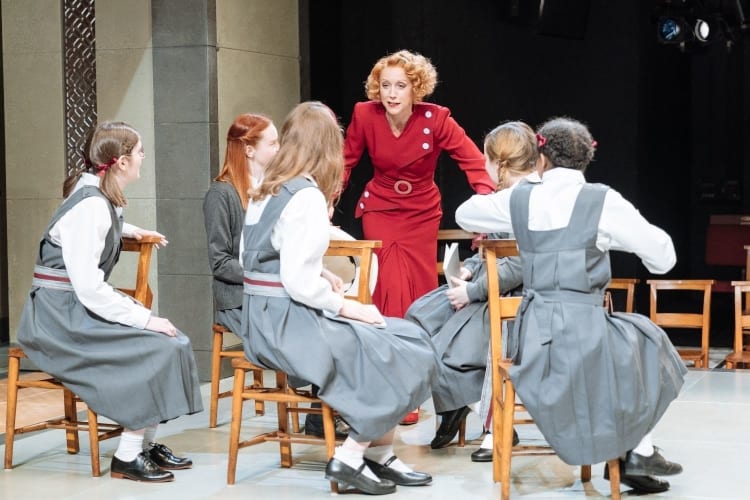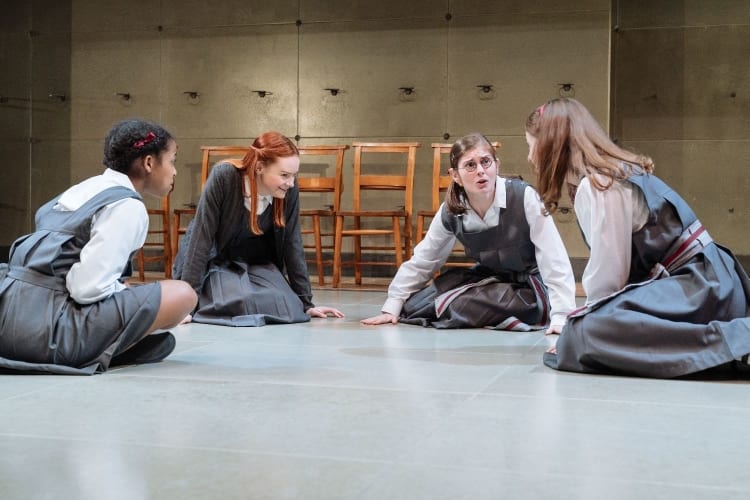Rather than reviving Jay Presson Allan’s popular stage adaptation of Muriel Spark’s 1961 novel, Josie Rourke has commissioned a new version from Donmar favourite David Harrower.
The Scottish playwright has remained faithful to the spirit of the original, while giving this 2½-hour production directed by Polly Findlay a slightly more modern sensibility and a more obvious frame. Events that took place in the 1930s are viewed over a decade later via the vehicle of a conversation between Rhona Morison’s Sandy Stranger, soon to take a vow of silence and the new name of sister Helena of the Transfiguration, and a young journalist who has sniffed out a story without knowing exactly what he will find.
That story starts in 1933 when Miss Jean Brodie, a kind of precursor to Hector in The History Boys, having determined that she is in “my prime” begins to weave her unorthodox spell on a new class of 11-year-olds, here represented by five very singular and well-differentiated characters.
Rather than following the syllabus recommended by the dull but caring headmistress of the swanky Marcia Blaine’s Academy for Girls, Silvestra Le Touzel taking the role of Miss Mackay, the self-possessed Jean Brodie prefers teaching methods “of a different hue”. Not so much a teacher as an educator, she believes in developing her pupils’ minds rather than following more traditional methods.
As such, she tries to inculcate her own enthusiasms into the wealthy Edinburgh youngsters, telling them fantastical tales about her own tragic history as well as artistic and political heroes such as Giotto and Mussolini and, when we return after an interval during which four years have passed, General Franco.
For a spinster schoolteacher, Lia Williams uses sultry vocal tones that almost make the leading character into a seductive vamp, which seems appropriate, given the impact that she has on two fellow teachers, Angus Wright playing shy, unimaginative Gordon Lowther and Edward MacLiam as his polar opposite, the lecherous father of many, Teddy Lloyd.
She also seduces the minds of “my girls”, persuading them that they are “the crème de la crème” and destined for great things. In particular, she holds the firm belief that Sandy will one day be a famous writer, while Helena Wilson’s Jenny is destined to become a star actress.
As interactions with Nicola Coughlan as Joyce Emily, the kind of girl who will always become the butt of her fellows’ immature humour, demonstrate, not only are these attempts to second-guess the future misguided, they can also be dangerous.
Lia Williams delivers a wholly convincing performance as Miss Jean Brodie, while Rona Morison does a good job of creating the contradictory Sandy in a production that plucks at the heartstrings, while delving deeply into the minds of all of the significant characters, showing both that David Harrower has a deep and empathetic understanding of the original work and also that the novel has the kind of timeless quality that guarantees it the status of a genuine classic.


